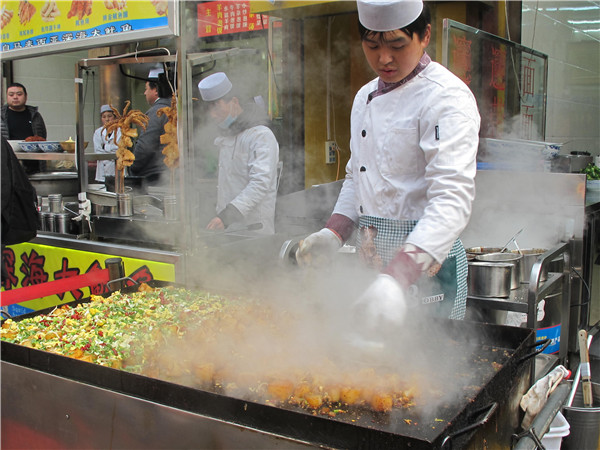Centuries of flavor
 |
|
Street food in Xi'an highlights Silk Road flavors. [Photo provided to China Daily] |
If Marco Polo could see me now, he'd be shocked.
I am attending a conference titled Top 100 Food Materials Along the Silk Road, and I am biting into a fresh, perfectly ripe tomato.
Polo wouldn't have recognized this robust red beauty, produced by an Inner Mongolia farm for online seller Lao Nong Bu Luo. There's still a chill in the Beijing air, but as the sweet-and-acid juice rolls across my tongue, I am transported to summer, the season tomatoes claim as their own. (Thanks to expert greenhouse growers, tomatoes can be quite fabulous even in March.)
Tomatoes are a New World product, popular from Ecuador to Mexico long before Marco Polo and Silk Roadies of the 13th century made a link between Chinese noodles and Italian pasta. Neither China nor Italy knew tomatoes then-they were introduced to the Venetians as ornamental plants about 200 years later, and Italians didn't start eating them until about two centuries after that. Chinese embraced them even later, a mere 150 years ago perhaps.
But the chefs, foodies, traders and ambassadors who have filled a banquet room at Beijing's JW Marriott aren't here to quibble about history. We're here to eat our way along today's Silk Road, highlighting both the broad cultural interest in the ancient commercial network and the economic energy that's reviving it today.
















